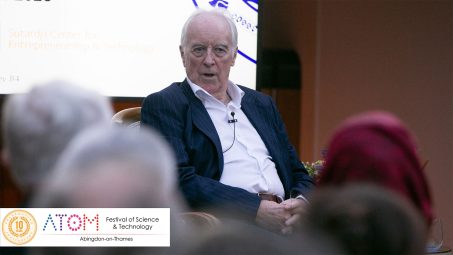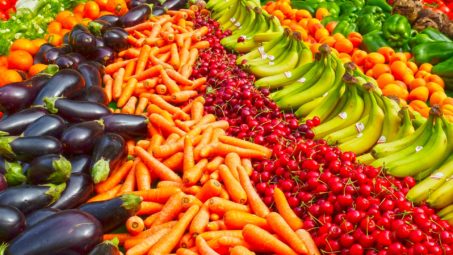
Is Plant Based a Game Changer?
The most talked-about diet right now is the plant-based diet; the new name for vegan. Plant-based diets have been growing in popularity over the past few years but growth has been accelerated or at least discussion around turning plant-based, by the documentary Game Changer.
Here I discuss whether being plant-based is a game-changer, and if one is going to turn plant-based what considerations are needed?
For those that have not seen the documentary Game Changer, in summary large meat-eating athletes of various levels ditch meat and fish and only eat plant-based foods to find that their performance improved. So why is this? The participants change in diet increased their intake of nutrients used in energy metabolism as well as antioxidants that support the immune system, bring down inflammation and aid muscle recovery. Compared to their previous diet that was most likely very high in meat protein, low in complex carbohydrates, fruit and vegetables; an inflammatory diet low in energy creating nutrients.
But the big question is, are the improvements experienced exclusive to a plant-based diet? Based on having studied nutrition at 2 universities for a total of 5 years, been in practice for 10 years and reading 7 hours of new research every week, my view is no, one does not have to be exclusively plant-based to achieve optimal performance. Vegan athletes and non-athletes can perform well on a plant-based diet but if choosing this diet just for performance that is not necessary. A diet high in vegetables, beans, pulses, nuts, seeds with some fish and a little meat will be supportive of good performance (and wellbeing).
However there are good reasons to follow a plant-based diet. Firstly one’s ethical views on eating animals and secondly sustainability. The United Nations has called for a shift by the Western world to move to a more plant-based diet estimating that emissions could fall by up to 8 billions tonnes a year. So what are the considerations needed when turning plant-based? The main challenge is vitamin B12. Vitamin B12 is essential for making red blood cells to transport oxygen around the body and is only found naturally in animal-sourced foods. For vegetarians this is less of a concern as milk is high in B12, but as the gas from cows is one of the main contributors to global warming one may choose to go dairy-free. In which case a B12 supplement should be taken or fortified foods consumed. The next biggest challenge is calcium which is essential for strong bones, teeth and muscle contraction.
Dairy is an excellent source of calcium as is fish with edible bones such as sardines. Plant-based calcium-rich foods include sesame, almonds and green leafy vegetables such as watercress; but these need to be eaten in vast quantities to meet daily requirements – 100g of sesame, 300g of almonds, 600g watercress or a mixture of. Most dairy-free milk alternatives are calcium fortified, but not all so do check the label.
The most common question from people considering turning plant-based is ‘where will I get protein from?’. This is not actually that difficult if including protein from beans, pulses, whole grains and seeds with meals and snacking on nuts. Also there are shelves and shelves of meat alternatives and replacements now available in supermarkets. However some of the meat alternatives are very processed which is a consideration if choosing veganism for wellbeing; but also many of the vegetable ‘burgers’, ‘sausages’ and patties available do not contain much protein – always check the label for protein content if using as a direct meat or fish replacement. If choosing to go plant-based I encourage a change in mindset – move away from a meat(replacement) and two veg looking plate and take inspiration from communities that are traditionally vegetarian such as in South Indians. Think dal and chickpea curries.
In summary performance and wellbeing is not the reason to choose a plant-based diet, there is no need to be so extreme. However we do all need to think about sustainability, some will be committed enough to go fully plant-based, for those that are not then adding in more vegetables, beans, pulses, nuts and seeds and reducing meat all contributes, and you’ll feel great.
More in Education

Stephen Clarke: Leading the Way at the ATOM Festival of Science...
Stephen Clarke, our Principal at Cherwell College Oxford, is not only a distinguished leader and former British diplomat, but also a passionate advocate for science and education. As the Chairman of ATOM Festival of Science & Technology, Stephen plays a pivotal role in bringing world-class scientific discussions and innovations to the heart of Abingdon. Stephen’s leadership ensures that the festival remains dynamic, inclusive, and engaging for people of all ages.

The Story Museum: Bringing Stories to Life in Magical Ways
The Story Museum is no ordinary museum. Nestled in the heart of Oxford, this unique, immersive space is dedicated to celebrating the power of storytelling in all its forms. Whether through interactive exhibitions, live performances, or creative workshops, The Story Museum is on a mission to enrich lives—especially young lives—through the magic of stories.

Unleash Your Potential: AI & Innovation Summer Camp at Cherwell College...
In an ever-evolving world where innovation drives progress, equipping oneself with cutting-edge skills becomes paramount. Cherwell College Oxford proudly presents its AI & Innovation Summer Camp, a transformative journey designed to empower young minds with the tools and insights needed to thrive in the digital age. Here’s why this programme is a must for aspiring innovators:
From this author

Investing in your long term health
Since the summer before studying for my degree in nutrition some 16 years ago through to now, I have been contracted by the Nutrition Society and [since the outsourcing of publications] Cambridge University Press to work on four of the world’s leading Nutritional Science journals.

What do we know about cancer?
1 in 2 people will have cancer, and this rate is increasing. More people will have cancer at some point in their lives than not. Over 1000 people are diagnosed with cancer every day in the UK. That’s staggering! So what needs to be done to reduce cancer rates and make cancer treatment more effective?

International Women’s Day – 8th March 2021
To celebrate International Women’s Day we ran two special editions of The Business Brunch as we were joined by a cross-section of inspirational women from the B4 community as they discussed their own personal experiences and challenges within the workplace, both positive and negative.

